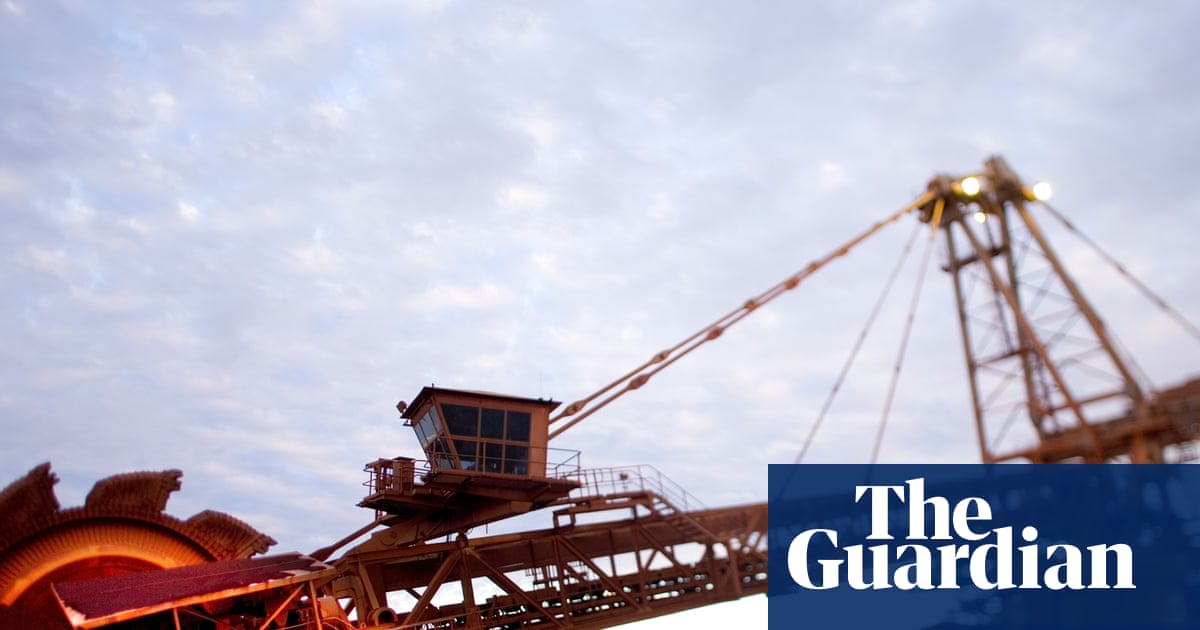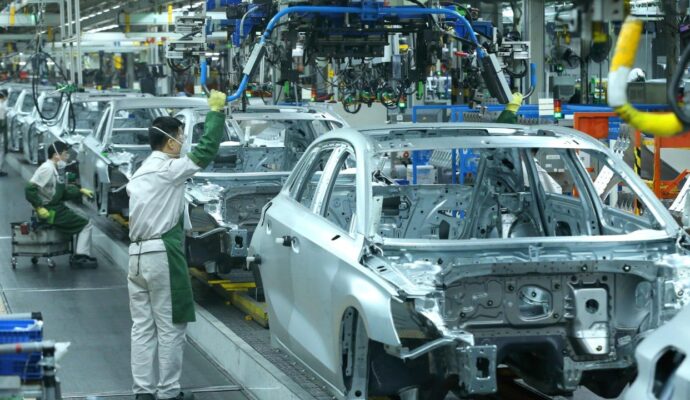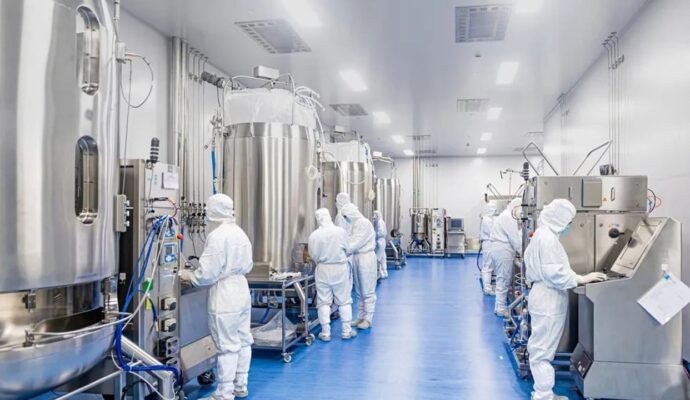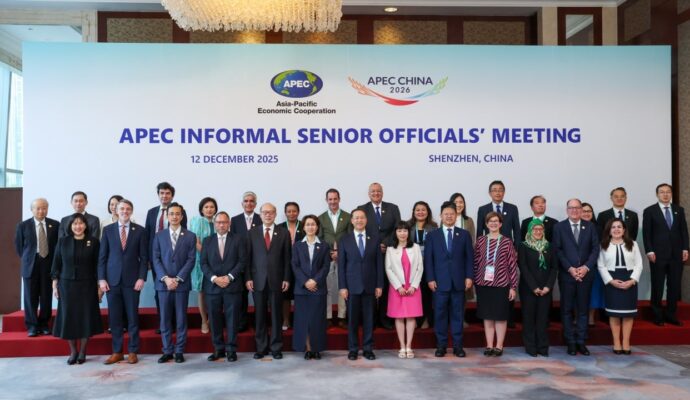
China, via a state-run enterprise, has reportedly banned its steel manufacturers from buying iron ore from Australian mining giant BHP, amid a strategic bid by Beijing to reduce prices of the crucial steel-making commodity.
While it is a commercial dispute, the fight has wide-ranging political ramifications, given the threat to Australia’s biggest export, valued at more than $100bn a year, and the possibility Canberra is drawn deeper into the fight.
Even if the impasse is resolved promptly, it could prove to be a foreshock that warns of an economic earthquake ahead.
What has happened?
In late September, Bloomberg reported that the state-owned China Mineral Resources Group (CMRG) told the country’s steelmakers to pause purchases of BHP’s seaborne iron ore cargoes during annual negotiations.
It represents an aggressive intervention by a state-owned enterprise that was set up in 2022 to strengthen the country’s hand during contract negotiations, now on full display.
Australia’s other big iron ore miners, Rio Tinto, Fortescue and Hancock Prospecting, as well as Brazilian giant Vale, will be watching closely.
The dispute has been in the making since at least 2010, when BHP was part of a push to put their Asian-based customers on to deals closely reflecting market, or spot, prices. This contrasted with the long-term pricing contracts that were then the norm.
As steel demand surged, a commodities “super-cycle” peaked shortly after the new system was instituted, with spot prices pushing above US$170 a tonne in 2011. This created huge wealth for the miners, and large royalty and tax takes for the Western Australian and federal governments.
Iron ore spot prices surged even above those levels early in the pandemic shortly before the creation of the CMRG. The iron ore spot price has been hovering around the US$100 a tonne mark most of the year, perplexing steel mills which had expected prices to fall.
CMRG’s intervention shows China prefers private contract negotiations over market-led prices. It also probably wants to increase the use of yuan when trading iron ore and other commodities, rather than use US dollar-denominated benchmarks, to give it more pricing power.
Who has the stronger hand?
Australia’s Pilbara giants cast a big shadow over the global supply of a commodity critical to construction; their product has been crucial to the rise of China as an economic powerhouse.
Analysts at RBC Capital Markets have described the apparent ban as a “neutral event”, given they believe it is a negotiating tactic with a short lifespan. They argue the ban on BHP would probably increase prices of ore coming from other miners, which would be counterproductive.
Stock market traders appear to agree, with the BHP share price quickly recovering from its initial falls recorded after news of the impasse.
Almost everybody close to the sector expects BHP to hold firm on the pricing mechanism, and not give an inch.
A BHP spokesperson said the company doesn’t comment on commercial negotiations.
While the ban could prove short-lived, given Chinese steel mills can’t easily replace BHP ore, CMRG’s intervention might more constructively be seen as an opening salvo.
China is developing the so-called “Pilbara killer” in the African nation of Guinea where the Simandou project is on track to become the world’s largest and highest-grade new iron ore mine.
Production at Simandou is majority controlled by Chinese companies, although the British-Australian miner Rio Tinto is also a significant player.
Simandou boasts high iron-content ore, referred to as high grades, and has been developed at a surprisingly fast pace this year, given its history of legal disputes and past development problems in the mountainous region.
CMRG’s negotiating hand should strengthen in the coming years.
Is this a political fight?
The iron ore dispute is still largely a commercial one that differs from China’s import restrictions placed on Australian coal in 2020, taken at a time of souring relations between the two countries.
Diplomatic ties between Australia and China have generally improved since Labor won office in mid-2022.
The WA and federal governments have a large stake in the outcome of negotiations.
Federal budget papers show that a US$10 a tonne movement in iron ore prices can result in an increase or decrease in Australia’s GDP of between $5bn and more than $10bn a year. The impact on the annual tax take can also run into the hundreds of millions, or even billions of dollars a year.
The prime minister, Anthony Albanese, has said he is concerned about the issue, and that he wants to make sure “markets operate properly”.
The treasurer, Jim Chalmers, has said he will discuss the matter with the BHP chief executive, Mike Henry.
In the meantime, BHP is still shipping its ore from the Pilbara to China, in line with current contracts, in a sign negotiations are still live.


